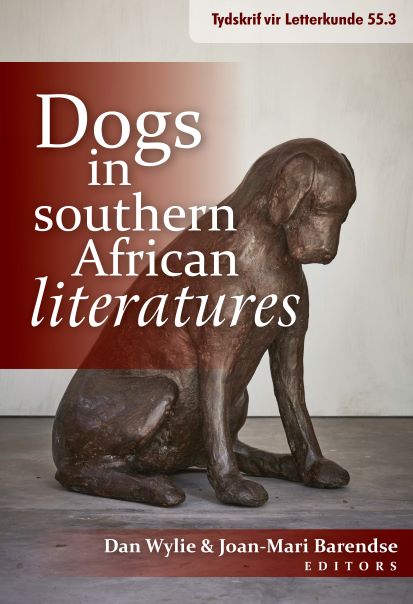“They’ve killed the dogs!”: Land, literature and canines in contemporary Zimbabwe
DOI:
https://doi.org/10.17159/2309-9070/tvl.v.55i3.5513Keywords:
dogs, fiction, Graham Lang, Ian Holding, Zimbabwe land reformAbstract
This article explores the positioning of the dog in representations of farm takeovers in Zimbabwe between 2000 and 2017. It highlights the localised embeddedness of animal lives within social processes at a specific juncture of postcolonial history. The article focuses particularly on this moment marked by abrupt reversals of power, geographical distributions of people and animals, and the erasure of many physical and psychological borderlines. It focuses particularly on two novels, Graham Lang’s Place of Birth (2006) and Ian Holding’s Unfeeling (2005). It examines ways in which dogs feature as both physical presences and as psychological refractors for human responses to the violent invasions depicted in these novels. Animals of all kinds have been largely neglected in studies of the land-appropriation process, and the article gestures towards the fruitful combination of animal studies and an historically-situated, multispecies, postcolonial ecocriticism.
Downloads
References
Adams, Carol. The Sexual Politics of Meat. Continuum, 2000.
Ahuja, Neel. “Postcolonial Critique in a Multispecies World.” PMLA vol. 124, no. 2, 2009, pp. 56–63.
Armstrong, Philip. “The Postcolonial Animal”. Society and Animals vol. 10, no. 3, 2013, pp. 412–9.
Buckle, Catherine. African Tears. Covos Day, 2001.
Buckle, Catherine. Beyond Tears. Jonathan Ball: Jeppestown, 2002.
Buckle, Catherine. Innocent Victims. E-book. Adobe Digital Editions, 2004.
Caute, David. Under the Skin: The death of white Rhodesia. Penguin, 1983.
Cordiero-Rodrigues, Luis and Les Mitchell, eds. Animals, Race and Multiculturalism. Palgrave Macmillan,
Eppel, John. Absent: The English Teacher. Weaver, 2009.
Fuller, Alexandra. Let’s Not Go to the Dogs Tonight. Picador, 2002.
Hanlon, Joseph, Jeanette Manjengwa and Teresa Smart. Zimbabwe Takes Back its Land. Jacana, 2013.
Hoba, Lawrence. The Trek and Other Stories. Weaver, 2009.
Holding, Ian. Unfeeling. Scribner, 2005.
Lamb, Christina. House of Stone. Harper Press, 2006.
Lang, Graham. Place of Birth. Jonathan Ball, 2006.
Liebenberg, Lauren. The Voluptuous Delights of Peanut Butter and Jam. Virago, 2008.
Miller, John. Empire and the Animal Body. Anthem Press, 2014.
Rogers, Douglas. The Last Resort. Jonathan Ball, 2009.
Scoones, Ian et al. Zimbabwe’s Land Reform: Myths and realities. James Currey, 2010.
Slovic, Scott, S. Rangarajan and V. Sarveswaran, eds. Ecoambiguity, Community and Development; Towards a
politicized ecocriticism. Lexington Press, 2014.
St John, Lauren. Rainbow’s End. Hamish Hamilton, 2007.
Van der Post, Laurens. A Story Like the Wind. Penguin, 1972.
Van der Post, Laurens. A Far-Off Place. Penguin, 1974.
Wolmer, William. From Wilderness Vision to Farm Invasions. James Currey, 2007.
Downloads
Published
Issue
Section
License
Copyright (c) 2018 Tydskrif vir Letterkunde

This work is licensed under a Creative Commons Attribution-ShareAlike 4.0 International License.


 https://orcid.org/0000-0001-6465-6584
https://orcid.org/0000-0001-6465-6584


.png)